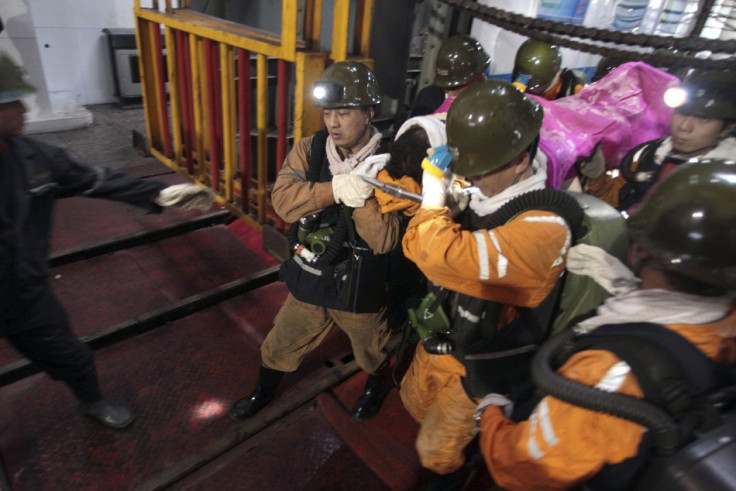28 Dead in China Mine Gas Blast

Twenty-eight miners have been killed in a gas explosion at a coal mine in northeast China, state media have confirmed.
The accident at the Babao Coal Mine in the city of Baishan in Jilin province came on the same day as 83 miners were feared dead after a landslide near a mine in Tibet.
A further 13 workers were rescued after the incident at the colliery, which is owned by the state's Tonghua Mining (Group) Company, the official Xinhua news agency reported.
There is rising concern in China about the number of fatalities in mining accidents, as corrupt officials cut corners with safety measures in order to meet the insatiable demand for coal, making Chinese mines amongst the most dangerous in the world.
China is the world's largest consumer of coal, with the fossil fuel meeting up to 70 percent of the country's energy needs.
Earlier this month 28 people were killed and 58 managed to escape to the surface after an explosion at the Machang coal mine in Guizhou Province, Xinhua reported.
An explosion at the Shangchang coal mine in the southwest Yunnan province left 17 people dead last December, while earlier that month, 23 people were killed in a gas explosion in a coal mine in Guizhou province, which borders Yunna.
In August seven people died in an explosion at a mine in Jilin, in China's northern industrial area.
The Chinese government last year closed down 600 of country's smaller and least safe mines. Official figures show a fall in the number of mining fatalities, with the 1,384 killed in 2012 down from 1,973 the year before.
However, many believe that the real death toll may be much higher, with managers often concealing fatalities and accidents in order to escape punishment and avoid being exposed as corrupt. The gains of a successful cover-up often outweigh the risks of a successful disaster response in China's authoritarian system, in which managers are rewarded for strictly adhering to centrally imposed targets.
© Copyright IBTimes 2025. All rights reserved.






















